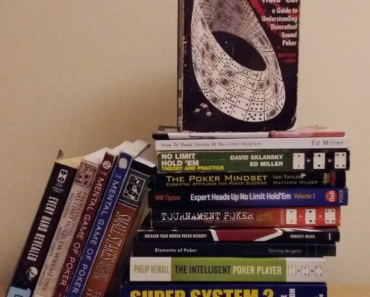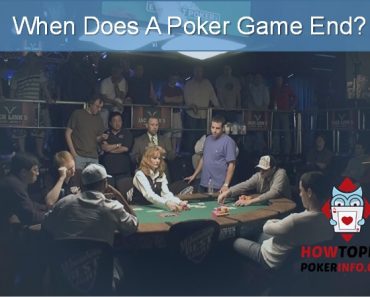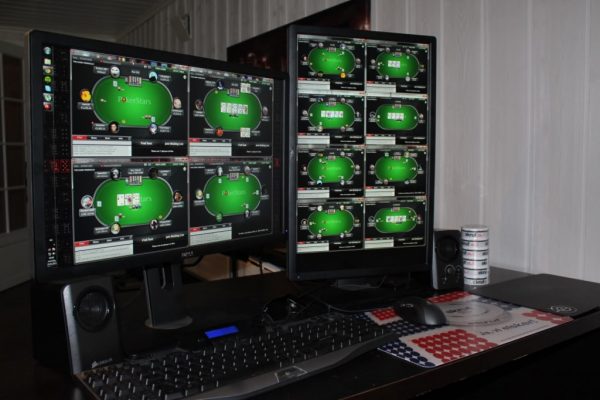One question I am often asked is, why are online poker games so hard to beat?
This often comes from players who have some experience within a live poker setting, or in some cases a player completely new to the game who have been crushed at the online tables.
So to cut straight to the point:
Online poker is hard for several reasons. First, the average online player is more experienced since hands can be played more quickly. Multitabling and HUDs also give seasoned online players a distinct advantage. Finally, the popularity of training sites and poker solvers allow dedicated players to improve quickly.
The culmination of these factors (and some others) have led to online poker games being considerably harder in comparison to “brick and mortar” games of the same stake. Let's take a look in more detail why this is and discuss some key takeaways that you can use to combat it.
The effect of hands per hour and multitabling
As mentioned, the main factor which results in online games being harder is that online poker players play way more hands than their live counterparts.
When playing online, I would average around 60-80 hands per hour on a single table of fullring cash games. For a live setting, you would be quite lucky to achieve half of that value, even with a very fast table.
Like most regulars, I would play more than one table at a time. My typical amount would be between 6-8 tables meaning, I would be dealt around 500 hands/hr. This is more than 10 times as many hands per hour as a brick and mortar player.
If I was to play a fast-fold format poker game such as zoom or rush poker, I could play up to 1000 hands per hour. Those numbers might be surprising to some of you reading but, that's not even that high in comparison to some of the heaviest online grinders.
So if I was trying to improve a particular part of my game, I would come across the opportunity to practice that spot up to 20 times more often when playing online compared to a live player.
More practice = faster improvement.
| Live | Online (single table) | Online (5-6 tables) | Online (fast-fold) |
|---|---|---|---|
| 30 hands/hr | 70 hands/hr | 500 hands/hr | 1000 hands/hr |
Somewhat related to this point is the number of fish and regs on each table due to multitabling.
If you consider that proficient online players are more likely to multitable while weaker players will only play one or two tables, it's fairly clear why, in comparison to live poker, online tables are full of regs and have very few fish.
In many cases, the online regulars are fighting for scraps over one or two weaker “fish” whereas, in a live setting, it's nearly the complete opposite: one or two decent players at each table feasting on 4-5 weaker players. This greatly affects the difficulty of playing in each of these two formats.
Poker training sites have made online poker much more difficult
Poker training has progressed a lot since the early days of Deucescracked and Cardrunners. Back then, all you got was a huge library of random content and a search feature to find what you need.
Nowadays you have step-by-step courses which walk you through exactly how to improve your game, with hours of professional video content and quizzes that build knowledge one brick at time.
Online players are far more likely to dive into these training sites due to its adjacent nature of “playing online” and “training online” – while playing online poker, you might be browsing forums which mention various courses or how a video helped them. Or maybe you might search youtube for poker content and come across one of the popular poker training sites which you later sign up to.
This ultimately means that online players tend to be more well educated in the game, less likely to have major flaws and are more capable of spotting weaknesses in their opponent's play. This is a generalisation of course and not a rule.
Some of the popular poker courses right now include Raise your Edge's Tournament Masterclass (for MTTs) or the Upswing Poker Lab (for cash game and an overall poker strategy). However, for someone new to the online training world, these would be considered quite expensive.
For new students of the game, I really like RedChipPoker's CORE which only costs $5 per week (basically, a cup of coffee). This contains a massive library of content that walks you step-by-step through the fundamental math, betting, opening ranges, preflop and postflop play and more for both cash and MTT formats.
| Training site | Raise Your Edge | Upswing Poker | Red Chip Poker |
|---|---|---|---|
| Course | Tournament masterclass | The Poker Lab | CORE |
| Price | $617 | $99/mth | $5/week |
| Good for | Intermediate & advanced | Beginner & intermediate | Beginner & intermediate |
| Rating | 8.8/10 | 8.4/10 | 8.5/10 |
RedChip CORE is also my most highly rated poker course at an affordable price for those breaking into the online world, so I'd recommend you find out more here in my review if you are intrigued.
The use of poker aids such as HUDs
Poker HUDs have become one of the most important parts of an online pros game over the last decade. For those that don't know, a HUD, or Heads Up Display, presents stats that you have gathered on your opponents so you can find and exploit their leaks. With poker HUD and tracking software, you can:
- Collect information on your opponents
- More easily find and exploit bad players
- Track your own statistics and winnings
- Review your play in an organised fashion
- Understand and spot leaks in your game
Despite some online sites not allowing the use of HUDs, they will be an essential part of most online players game for the foreseeable future. So if you have yet to start using one, now is the time!
Poker solvers have pushed the boundaries of the online game
Before the time of poker solvers such as PIOSolver and Cardrunners Ev, poker was much more of a heuristic game, i.e. a game that was figured out through experience or trial and error.
Now there are a huge number of solvers and training aids which can provide strategies that are edging ever close to “game theory optimal”.
These tools are pushing the boundaries of what we thought was possible even just a few years ago. Now we have almost fully solved preflop strategies for fullring and 6max games – these aren't found using a supercomputer either, consumer-grade computers and laptops can tackle these previously “unsolvable” problems.
In some cases, pros are even developing their own solvers for their personal use – take, for example, the well-known high stakes-crusher Alex ‘Kanu7 Millar who showed off his solver in his popular cash game training course.

Alex ‘Kanu7 Millar's “personal” solver tool
Right now at the highest stakes, the pro's biggest edge preflop come from knowing what adjustments to make to their opening ranges in order to maximally exploit their opponent's leaks – opening ranges are now fairly standard across many of the regs.
It has become fairly customary even at lower stakes to figure out what hands you should be playing from each position and how you will react to each potential action BEFORE you sit down at the table – this is referred to as a range construction. Working this out beforehand makes you much more comfortable with any decision you make preflop and in my opinion is one of the fastest ways to improve your game.
If this sounds interesting, I would recommend reading my free resource on how to create your own opening hand ranges from scratch, which includes including the free 20 million hand poker database excel sheet as a bonus.
The advantage of playing online versus live
Well, it's not all bad. There are still significant advantages to playing online. Here are some:
- Online poker is available 24/7 in most locations around the world, even in the strange times we now live in
- Although being able to play more hands means tougher games, it also means you can learn more quickly so that when you do venture back to a live setting, you will be a much-improved player
- You get to earn rakeback rewards online which is not possible when playing live
- The ability to play in the comfort of your own home and not need to pay for fuel for your drive to the casino
- Wider variety of available games
- Poker signup bonuses which greatly improves profitability – Click here for more info on this from a previous post of mine
So can online poker be beaten?
All of this begs the question of whether online poker can be beaten in 2020?
Although there is no doubt that winning is harder than in the past, there is still money to be made playing online poker. There are plenty of examples online of players posting winning over large samples, in tournaments, cash games, sit and goes, spin and goes or whichever your favourite format happens to be.
Of course, winrates are no longer as high as they used to be and the same ol' strategies from 5 years ago have since been figured out. However, if you work hard and are dedicated to improving, there is no question that you can still become a profitable winner.
Just make sure you start at the right stakes with good bankroll management to give yourself the best shot!
Related questions
Why does online poker feel rigged?
Online poker can feel rigged due to the sheer number of bad beats you can experience in a short amount of time. When playing 100's or 1000's of hands per hour, it's only a matter of time before you see extraordinary bad beats and extended downswings.
Is online poker worth playing?
Online poker is definitely worth playing in if your goal is to have some fun and be in with some chance of winning money. If you are a very casual player, don't expect to be taking home large prizes and concentrate on enjoying yourself. If you are a more dedicate player, enjoy the swings and try your best to work on your game. Work hard enough, and you might make quite a few dollars.







